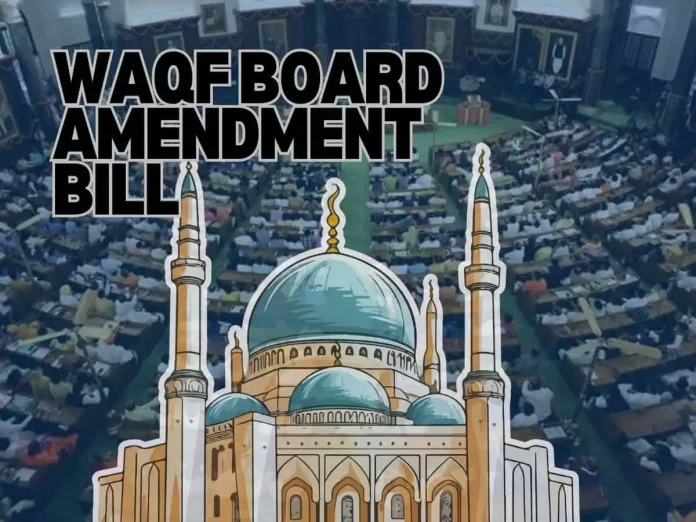The debate over the Waqf (Amendment) Bill, 2024, has escalated as the Opposition formally dissented on 281 out of the 428 pages of the Joint Parliamentary Committee (JPC) report. The bill, which was tabled in Parliament last year, was sent for further review and has since become a focal point of political contention.
Opposition’s Stand on the JPC Report
JPC Chairman Jagdambika Pal stated that the Opposition had initially misled the committee by suggesting that the bill would lead to the seizure of all Waqf properties. Now, he claims, the Opposition is using this argument as part of a broader appeasement strategy. Despite their active participation in the JPC proceedings, Opposition leaders have lodged substantial dissent in the final report.
According to Pal, the committee conducted extensive discussions, consulting representatives from the Waqf Board, the Minority Commission, government officials, stakeholders, and Islamic scholars. The final report, which includes recommendations and amendments, was compiled after rigorous deliberation and was submitted to the Speaker of the Lok Sabha.
Voting and Decision-Making Process
Pal highlighted that the JPC followed a democratic process, making decisions through voting. The committee included key figures such as AIMIM chief Asaduddin Owaisi and Congress MP Naseer Hussain. While amendments were made based on majority opinion, the dissenting notes from Opposition members will also be presented when the report is tabled in Parliament.
Despite this dissent, Pal emphasized that the JPC maintained transparency and inclusivity in its deliberations. He pointed out that even those who now oppose the bill actively participated in shaping its contents.
When Will the JPC Report Be Tabled in Parliament?
The JPC submitted its final report to Lok Sabha Speaker Om Birla on January 30, 2025. However, the bill was not scheduled for presentation in Parliament on February 3, 2025. Pal clarified that the report would be tabled once the Speaker sets the agenda and the Business Advisory Committee approves it.
The committee had adopted the draft report and amended the bill on January 29, 2025. Despite making 25 amendments across 14 clauses, Opposition members still expressed dissent. The report’s submission marks a critical moment in the legislative process, setting the stage for further debate in Parliament.
Background of the Waqf (Amendment) Bill, 2024
The original Waqf Act of 1995 was introduced to regulate Waqf properties, but over the years, it has faced criticism for issues such as mismanagement, corruption, and encroachments. To address these concerns, the government introduced two bills in the Lok Sabha on August 8, 2024: the Waqf (Amendment) Bill, 2024, and the Mussalman Wakf (Repeal) Bill, 2024.
The primary objective of the amendment is to enhance the efficiency and accountability of Waqf Boards. Key proposed changes in the bill include:
- Renaming the Waqf Act to better reflect its modernized approach.
- Updating the definition of Waqf properties.
- Streamlining the registration process for improved record-keeping.
- Leveraging technology for better transparency and management.
Political Implications and Reactions
The bill has sparked a political storm, with the Opposition arguing that it undermines the rights of the minority community. They claim that the bill could potentially lead to unfair dispossession of Waqf properties, affecting the Muslim community’s welfare.
On the other hand, the ruling party argues that the amendment is necessary to curb corruption and ensure the proper use of Waqf assets. They highlight that the bill introduces a structured framework to eliminate discrepancies and enhance governance.
The sharp decline in net income from Waqf properties over the past five years—from 2019-20 to 2023-24—has further fueled concerns. Despite an increase in the number of registered properties, revenue has fallen by nearly 99%. This statistic has been cited by both proponents and opponents of the bill to support their respective positions.
Next Steps and Future Course
As the JPC report awaits presentation in Parliament, the government will need to navigate a heated discussion. The inclusion of the Opposition’s dissenting views in the report demonstrates parliamentary procedure at work. However, whether these objections will influence the final decision remains uncertain.
The fate of the Waqf (Amendment) Bill, 2024, will depend on the ensuing parliamentary debates and whether the government accommodates any concerns raised by Opposition members. As discussions unfold, the bill will continue to be a focal point of political discourse, reflecting larger issues of governance, minority rights, and legislative transparency.
BY – JYOTHI




